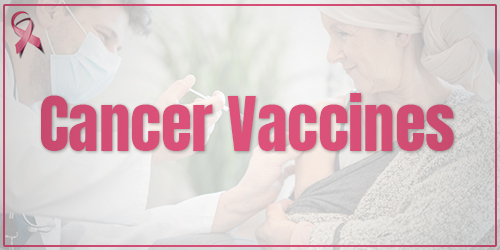Cancer vaccines are a type of immunotherapy designed to harness the body's immune system to fight against cancer cells. Unlike traditional vaccines that prevent infectious diseases by introducing weakened or killed pathogens, cancer vaccines aim to train the immune system to recognize and attack cancerous cells specifically.
How do Cancer Treatment Vaccines Function?
Cancer treatment vaccines operate by leveraging antigens, which are substances perceived by the body as harmful when located on cell surfaces. The immune system identifies these antigens and typically eliminates them, leaving behind a lasting "memory" that aids in combatting similar antigens in the future.
These vaccines work to enhance the immune system's capacity to detect and eradicate antigens, particularly those specific to cancer cells. Cancer cells often exhibit certain molecules known as cancer-specific antigens on their surface, absent in healthy cells. When administered, a vaccine introduces these molecules as antigens, signaling the immune system to target and destroy cancer cells displaying these molecules.
Some cancer vaccines are personalized, tailored for a single individual. These vaccines are developed from samples of the person's tumor obtained during surgery. Conversely, non-personalized cancer vaccines target specific cancer antigens common across individuals whose tumors possess these antigens on the surface.
Clinical trials, involving volunteer participants, typically offer most cancer vaccines. In 2010, the FDA approved sipuleucel-T (Provenge) for individuals with metastatic prostate cancer, customized to each person through several steps:
- Extraction of white blood cells from the individual's blood, crucial for fighting infection and disease.
- Laboratory modification of white blood cells to target prostate cancer cells.
- Reintroduction of modified cells into the person's bloodstream, akin to a blood transfusion. These cells instruct the immune system to locate and eliminate prostate cancer cells.
Additionally, another vaccine utilizes weakened Bacillus Calmette-Guérin (BCG) bacteria injected into the body to activate the immune system for treating early-stage bladder cancer.
Are There Cancer-Preventing Vaccines?
Certain vaccines are designed to prevent healthy individuals from developing specific cancers triggered by viruses. Similar to vaccines for chickenpox or influenza, these vaccines shield the body from such viruses. However, their effectiveness hinges on individuals receiving the vaccine before virus exposure.
The U.S. Food and Drug Administration (FDA) has approved two types of cancer-preventing vaccines:
HPV Vaccine: This vaccine guards against the human papillomavirus (HPV), known for causing various cancers if the virus persists in the body. FDA-approved HPV vaccines protect against:
- Cervical, vaginal, and vulvar cancers
- Anal cancer
- Genital warts
- Additionally, HPV can lead to other cancers not yet covered by the FDA-approved vaccine, such as oral cancer.
Hepatitis B Vaccine: This vaccine provides protection against the hepatitis B virus (HBV), a potential cause of liver cancer.
These vaccines serve as crucial tools in cancer prevention, emphasizing the significance of timely vaccination before virus exposure.














